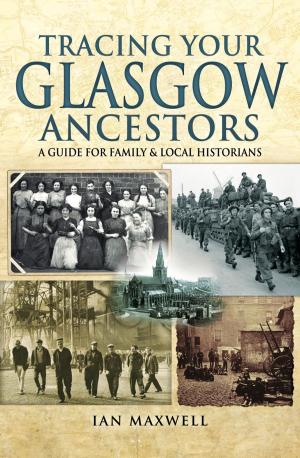Tracing Your Labour Movement Ancestors
A Guide for Family Historians
Nonfiction, Reference & Language, Reference, Genealogy, History| Author: | Mark Crail | ISBN: | 9781844686827 |
| Publisher: | Pen and Sword | Publication: | March 10, 2010 |
| Imprint: | Pen and Sword | Language: | English |
| Author: | Mark Crail |
| ISBN: | 9781844686827 |
| Publisher: | Pen and Sword |
| Publication: | March 10, 2010 |
| Imprint: | Pen and Sword |
| Language: | English |
If you want to find out about the life of an ancestor who was active in the labor movement or was a union member, this handbook will be a fascinating introduction to the subject. Mark Crail provides a graphic and authoritative account of the history of the labor movement in Britain from the early nineteenth century to the modern day. He gives a vivid insight into the key stages in the development of labor relations - the battles fought by labor movement pioneers, the formation of the first unions, the influence of Chartism and the early socialist societies, the rise of the Labor Party and other left-wing groups, and the impact of organized labor on workers’ lives as ordinary people gradually won the right to vote over the course of 200 years. At the same time he describes in detail the various books, museums, archives, websites and other resources that researchers can use to explore labor history for themselves and to uncover the careers and experience of their ancestors. A mass of information is available relating to individuals and to labor history in general, and this handbook is an invaluable guide to it. 'Tracing Your Labor Movement Ancestors' should be essential reading for anyone who wishes to learn about the origins and development of the labor movement and the role of individuals within it.
If you want to find out about the life of an ancestor who was active in the labor movement or was a union member, this handbook will be a fascinating introduction to the subject. Mark Crail provides a graphic and authoritative account of the history of the labor movement in Britain from the early nineteenth century to the modern day. He gives a vivid insight into the key stages in the development of labor relations - the battles fought by labor movement pioneers, the formation of the first unions, the influence of Chartism and the early socialist societies, the rise of the Labor Party and other left-wing groups, and the impact of organized labor on workers’ lives as ordinary people gradually won the right to vote over the course of 200 years. At the same time he describes in detail the various books, museums, archives, websites and other resources that researchers can use to explore labor history for themselves and to uncover the careers and experience of their ancestors. A mass of information is available relating to individuals and to labor history in general, and this handbook is an invaluable guide to it. 'Tracing Your Labor Movement Ancestors' should be essential reading for anyone who wishes to learn about the origins and development of the labor movement and the role of individuals within it.















